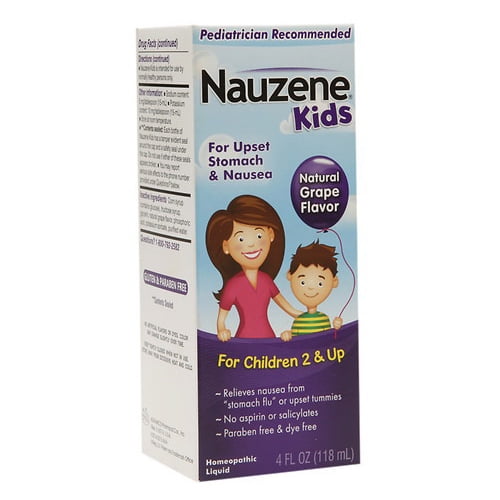

Īnticholinergics: Scopolamine is the most commonly encountered medication in this class. Side effects are mild when used short-term and include insomnia, excitation, and mood changes. Dexamethasone has been the topic of extensive study in chemotherapy and the prevention of postoperative nausea and vomiting literature. Possible mechanisms are changes in the blood-brain barrier and decrease the synthesis of prostaglandin messengers. Glucocorticoids: The mechanism of action is not clearly understood. The most worrisome side effect is QTc-prolongation, and clinicians should avoid these medications in patients with known prolonged QTc. Side effects include headache, dizziness, and constipation. Intravenous (IV) and oral (PO) preparations are available. Of these, ondansetron and granisetron are the most frequently encountered. The mechanism of action is to block serotonin from interacting with the 5-HT3 receptor. Serotonin-receptor antagonists: Ondansetron, granisetron, dolasetron, palonosetron. The setting and clinical presentation will dictate the type of medication prescribed, the dosing, and the route of administration. A careful review of the symptoms and past medical history, allergies, and prior exposure to/uses of these medications will lead to a better outcome for the patient. Pregnancy merits consideration in women of child-bearing age. Practitioners should be wary of overlooking surgical emergencies such as small bowel obstructions, perforated viscus, and acute appendicitis, among others. Empiric treatment of nausea in the absence of a clear diagnosis is typically well-tolerated and may result in a significant benefit to the patient. No rule of thumb can be applied when treating nausea. Chronic nausea is more likely to be multi-factorial, necessitate more prolonged therapy, and might be more challenging to treat. Acute onset nausea/emesis is more likely related to a defined insult or problem and may require a minimal or short duration of treatment. Therapy to treat chronic nausea stemming from chemotherapeutic agents and doses will vary from the treatment of postoperative nausea (a relatively common side effect of general anesthesia) and vomiting. Indications for the treatment of symptoms require astute evaluation by the treating provider. Multiple or single neurohumoral pathways may be involved.

Causes may be as simple as the body's defense against an ingested toxin, to a complex association set of signals activated by motion, medications, anesthesia, position, stress, pregnancy, psychiatric disorder, and/or fear. Nausea is a commonly encountered symptom in healthcare, one that is difficult for any patient.


 0 kommentar(er)
0 kommentar(er)
